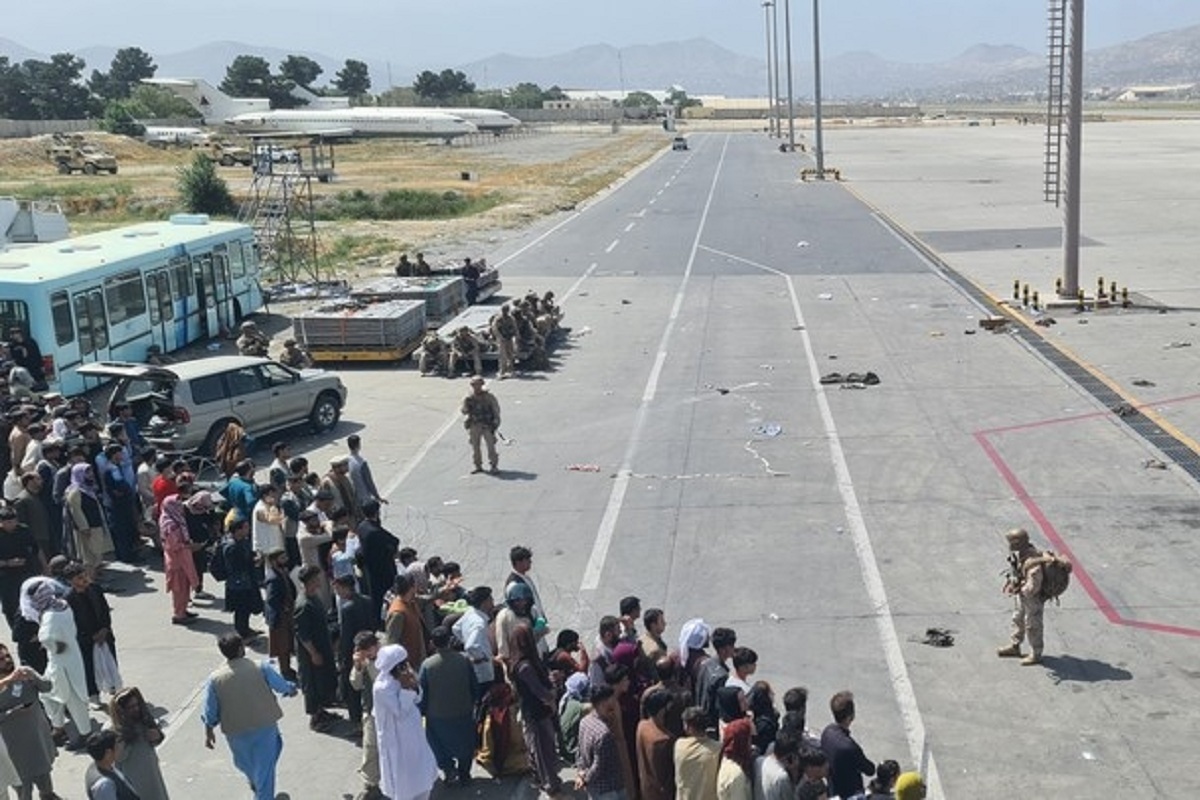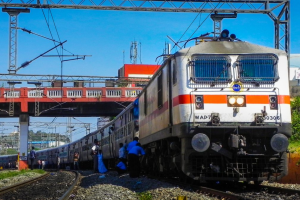The entry of Taliban 2.0 into Kabul, and ongoing talks to form an inclusive government, projects a picture that the group is willing to bend to display a positive image. This is being supplemented by statements from their spokespersons, aiming to prove that Taliban 2.0 seeks development and growth while respecting human rights and protecting women, as compared to Taliban 1.0.
Russia’s Ambassador to Afghanistan, Dmitry Zhirnov, even stated that the Taliban had made Kabul safer than it was under the previous regime. However, some things about Afghanistan and the Taliban will never change. Firstly, Pakistan would continue to try and exert pressure by blackmail. Pakistan had held the current Taliban chief negotiator, Mullah Baradar, in prison for eight years, only because he attempted to negotiate directly with Hamid Karzai, the then President of Afghanistan, for a peaceful settlement.
Advertisement
Reports suggest that the supreme leader of the Taliban, Haibatullah Akhundzada, is in custody of Pakistan and they are hoping to blackmail the Taliban into nominating their supporters. Secondly, the Taliban is unlikely to remain a stooge of Pakistan. During the period of Taliban 1.0, Pakistan tried to get them to sign on the dotted line to accept the Durand Line as the legitimate border, but they wriggled out.
This time, Pakistan would have three demands, settling the Durand Line, keeping India out and suppressing the Tehreek-e-Taliban Pakistan (TTP). The Taliban has currently displayed an unwillingness to bend. It released top TTP leaders from Afghan jails to the discomfort of Pakistan, as also advised Pakistan to negotiate with them, while inviting India to complete its projects. The TTP demands an independent state with Sharia Laws in Pakistan’s tribal areas. The Taliban compelled Pakistan to open border crossings on its terms, rather than bend to Islamabad’s requests.
Thirdly, the Taliban will continue to remain a suppressive regime. Indications of the same are visible from different parts of the country. Reports state women are being killed and shipped as sex slaves across borders. There are inputs that young girls are being forcibly married to Taliban fighters. In Herat, the Taliban has already issued diktats that boys and girls cannot study together. Inputs on Taliban’s brutality and swift form of justice are flowing from various parts of the country. Minority Shias are being killed randomly. Only Kabul is displayed as a model city for global consumption.
Hence, the global community may find it difficult to accept the promises of the Taliban. Fourthly, it is unlikely that the Taliban will suppress terrorist groups on its soil. Most terrorist groups operating in Afghanistan, including the ISIS and ETIM (East Turkestan Islamic Movement) fought alongside the Taliban in its ouster of the democratic government of Ashraf Ghani.
Reports on the resurgence of al Qaeda and ISIS continue to flow. US intelligence reports state that the ISIS is present near Kabul airport. The Taliban’s refusal to bend to Pakistan’s diktat on supressing the TTP is an indicator of their intention of continuing to aid their allies. Fifthly, India has a right to be concerned about the role Afghanistan will play in abetting terrorism in Kashmir. Taliban 1.0 was supportive of Pakistan’s role, while Taliban 2.0 promises otherwise.
However, the fact that the JeM and LeT fought alongside them makes it probable that they would be supported with recruits, training and arms on reciprocity. Sixthly, while the Taliban may seek to push its ideology across frontiers, it will not attempt to expand its power beyond Afghanistan. Simultaneously, as with Taliban 1.0, the militia will remain defenders of Sharia and enforce immediate justice on those who it considers as guilty.
In addition, despite all claims to the contrary, there would be revenge against those who collaborated with the US, India and the previous government. The central government may not be able to control its loose militia, spread across the country, seeking to enforce their own form of justice. Corruption from the drug trade would exist as it did during Taliban 1.0. There are some aspects which may change and impact the regional environment.
Firstly, as compared to Taliban 1.0, which ruled in an era of limited global connectivity and social media, Taliban 2.0 operates in a vastly changed media environment. The influence of Taliban 1.0 did exist in Pakistan, but that of 2.0 runs deep within Pakistani society. Seminaries across the country, including Islamabad, displayed Taliban flags. There were rallies across the country supporting the Taliban.
Pakistani clerics would soon demand a similar form of government for their country, impacting its democratic image and raising concerns on the security of its nuclear weapons. An editorial in Dawn stated, “many pro-Afghan Taliban elements in this country may seek to import the form of governance taking shape in Pakistan’s western neighbour by attempting to create ‘emirates’ within the state.”
Secondly, India, which stayed away from Taliban 1.0, is engaging Taliban 2.0. Its developmental projects and soft power in the country has resulted in the Taliban hoping for its participation in the development of the country. India would wait and watch to determine how the situation unfolds before determining its future role. It would, in any way, be more engaged with Afghanistan now than with the previous Taliban regime. The level of engagement would be determined with time.
Thirdly, China would emerge as a major player in Afghanistan. Its engagement with Taliban 2.0 over the years, possibly even in funding their operations, would enhance its power. It will wait for peace within the country before it pushes its exploitation agenda within. Fourthly, Pakistan would pay for supporting the Taliban. During the rule of Taliban 1.0, Pakistan became a US ally in the War on Terror, though under force and pressure.
Once the pull out of western nationals is complete from Afghanistan, the utility of Pakistan will recede, and it may face isolation. Foreign Minister Qureshi has already commented that Pakistan is not being acknowledged for its role in evacuating western citizens from Afghanistan. There would be some changes with Taliban 2.0 while largely they would remain the same.
(The writer is a retired Major-General of the Indian Army)










